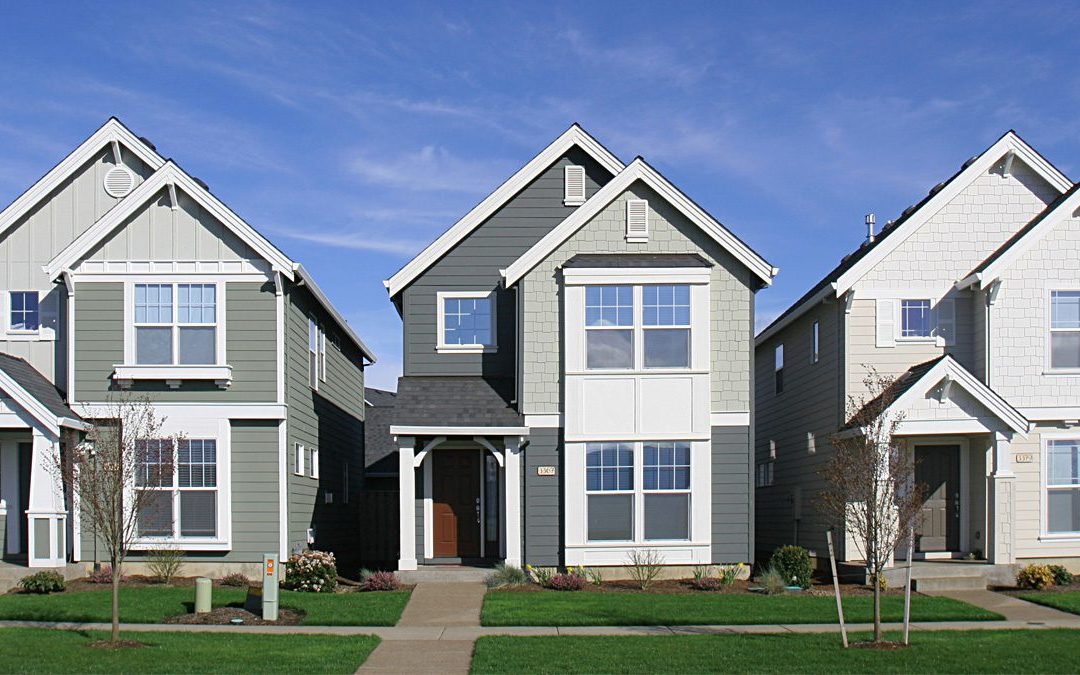Too Close for Comfort? Why Some Homes Are Built Only Feet Apart (and What You Can Do About It): MABA Massachusetts RealEstate HomeOwner
When you sneeze in your kitchen, does your next-door neighbor say, “Gesundheit!“ from their living room? If the answer is yes, that’s a sure sign you’re living way too close to the house next door. But when you’re looking at a home to buy, and no one’s home next door (sneezing or otherwise), it’s hard to tell if you’ll hear your neighbors once you move in. And even if it does feel too close for comfort (like, so close you can borrow sugar from your neighbor through your respective kitchen windows), you might not have a choice when shopping for a house.
Many new homes and plenty of older ones seem to be built right on top of one another. “In South Florida, it’s becoming more and more of a relevant issue,” says Baron Christopher Hanson, a real estate agent with Coldwell Banker Realty in Stuart, FL. “Nearly seven out of ten incoming Florida homebuyers ask me about backyard privacy within the first thirty seconds of our initial conversation.” So let’s take a look at the requirements for how near houses can be built next to one another. And what you can do if you live a little too close for comfort to your neighbor.
Why are homes built so close together?
There’s a shortage of construction-ready lots available to build homes. Indeed, lot inventory in all the top markets remains “significantly undersupplied,” according to housing market data tracker Zonda Economics. (The three hardest-hit markets are in Florida: Jacksonville, Tampa, and Miami.) Economists point to decades old zoning rules and land-use regulations as the reason there is a shortage.
“Space is tight, and so new homes are being constructed right next to each other,” says Doug Greene, a real estate investor in Philadelphia. “Many homeowners are grateful to get a place in today’s red hot market. It’s not until they move in that they realize just how packed in things are on the block.” Homes that stand cheek by jowl also have a long history. Row houses a series of homes connected by common sidewalls originated in Northern European and British cities during the sixteenth and seventeenth centuries.
What is the legal minimum distance required between houses?
With land at a premium and changes to local zoning laws aimed at easing the nationwide housing crunch, density in residential neighborhoods is rapidly increasing. Sometimes, in large tract home developments, it can feel like the homes were built within arm’s reach of one another. And here’s why there is no federal requirement on how far apart houses should be. Minimum setbacks (or the required space between your house and your neighbor’s house) vary from city to city and even from neighborhood to neighborhood.
“In most cases, the town will have a specific side setback requirement that states the minimum amount of feet the building must be from the lot line,” says Bill Samuel, a real estate investor and general contractor in Elmhurst, IL. The most common setbacks are often thirty feet in front, five feet on each side, and fifteen feet in the back. If you’re curious, check with your local building department. It can provide you with all the zoning rules relevant to your potential neighborhood.
___
Watch: Is 3D Printing the Future of Home Building?
___
How to predict whether you’ll hear your neighbor
There are several ways to get an accurate understanding of how much noise you’ll be able to hear from your neighbors. “Reviewing the homeowners association, condo, or co-op’s house rules as they relate to noise standards is a good place to start,” Michael Shapot, a real estate agent with New York’s Keller Williams. “And, of course, observe noise levels at the home at different times of day before committing to purchasing.”
So take your time and determine how much noise you are comfortable living with or next to. “Don’t be afraid to be picky,” says Stephen Keighery, CEO and founder of Home Buyer Louisiana, based in New Orleans. “Buying a home is a huge commitment, and minor inconveniences like a neighbor’s noise can significantly impact your living experience.”
How to mitigate noise in your outdoor space
If you found a home you love despite being able to reach out and touch your neighbors there are a few things you can do to ensure peace and quiet in your own outdoor space.
- Plant a privacy border made up of shrubs and trees that are lovely to look at and can help muffle neighborhood noise.
- Mask outside hubbub with a water feature to bring a soothing element to the backyard.
- Build a sound-buffering wall to help drown out any din. Check with your local building department on requirements before you start building.
- Use screens or shades to create even more privacy while adding a design element to the backyard.
“Another thing I recommend is to simply invite your neighbors over to your place and build a good relationship with them,” says Marina Vaamonde, a real estate agent in Houston. “The better you get along with each other, the more you’ll respect each other’s wishes.”
Translation: When they get noisy, you’ll have an easier time telling them to please quiet down.
The post Too Close for Comfort? Why Some Homes Are Built Only Feet Apart (and What You Can Do About It) appeared first on Real Estate News & Insights | realtor.com®.
Who Pays the Home Buyer's Agent?
 Both seller's agent fees and buyer agent's fees are part of a typical real estate transaction and are included in the final negotiated purchase price of the property. There should be no additional fees to the buyer for a buyer's agent above and beyond the negotiated purchase price of a home unless specifically agreed in writing between the buyer and agent before an offer is made.
Both seller's agent fees and buyer agent's fees are part of a typical real estate transaction and are included in the final negotiated purchase price of the property. There should be no additional fees to the buyer for a buyer's agent above and beyond the negotiated purchase price of a home unless specifically agreed in writing between the buyer and agent before an offer is made.
In most cases, the seller's agent pays the buyer's agent for bringing the buyer, negotiating the purchase price and terms, writing a legally correct offer, coordinating inspections, responses, and financing plus handling numerous additional details on the buyer's side of the transaction.
Buyers should avoid contacting seller's agents and sellers directly unless they are comfortable negotiating and representing themselves. That is why it is important for buyers to choose their agents BEFORE they begin looking at homes or as soon as possible if they have begun looking.
Did you know that fewer than one percent of the agents and brokers in Massachusetts have committed to being 100% loyal to their buyers 100% of the time?
To learn more about the pros and cons of various types of buyer agents, or to get a list of experienced local 100% loyal buyer's agents to interview without obligation, click the button below.
Find a Great Buyer Agent!
Client Testimonial:
 "No amount of reading or web surfing can equal having a competent professional advising you and looking out for your interests. I do not understand why anyone would buy a house in MA without a MABA buyer's broker."
"No amount of reading or web surfing can equal having a competent professional advising you and looking out for your interests. I do not understand why anyone would buy a house in MA without a MABA buyer's broker."
- Samantha and Brendan, Purchased a home in Marlborough, MA 2012
Article From: "Meera Pal" Read full article
Get Started with MABA
For no extra cost, let a MABA buyer agent protect your interests








